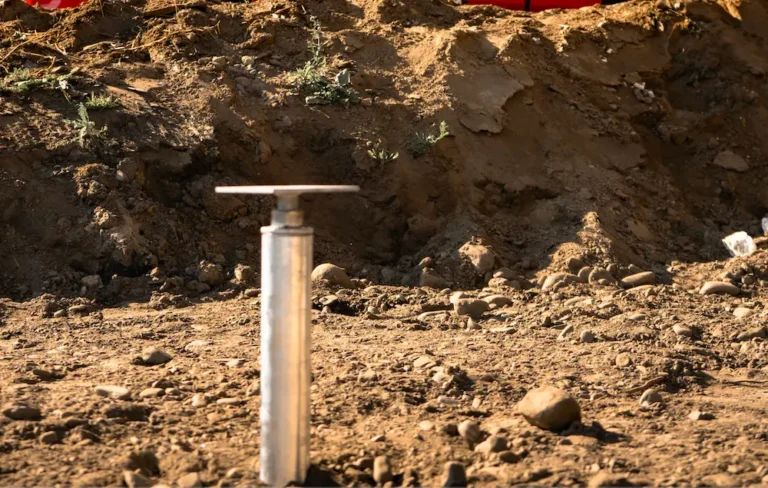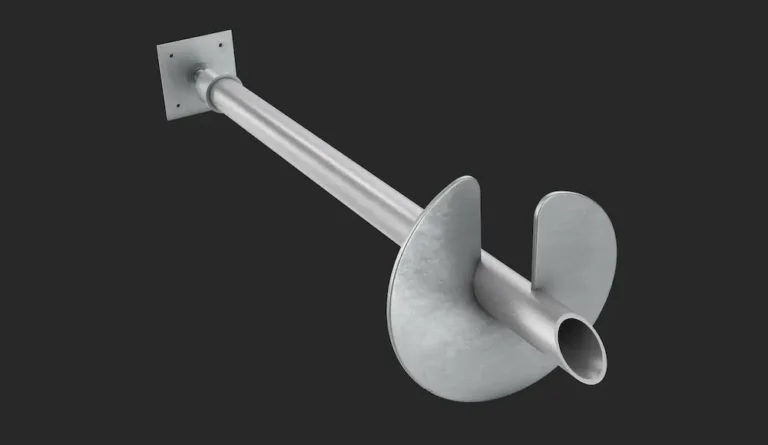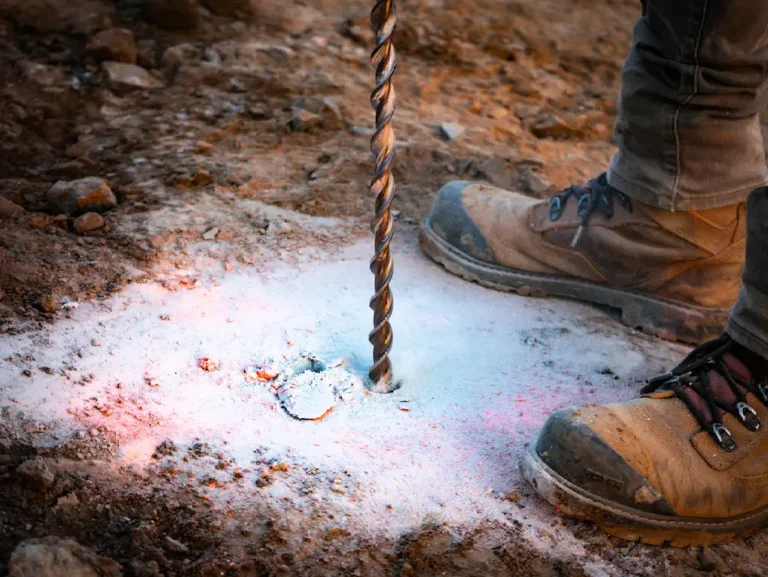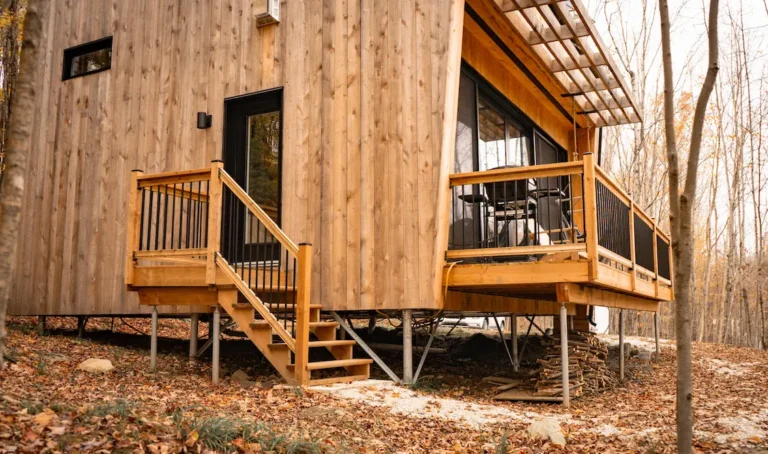People are concerned about helical pile durability, wondering if the upfront cost is worth it. Helical piles are becoming more widely used to support home extensions, cottages, fences, sheds, walkways, and public structures throughout Canada. But before going ahead with the construction, consumers often wonder how long the piles will last.
- This article explains helical piles’ durability and delves into the main factors that have an impact on it.
Professionally manufactured and installed screw piles are a versatile foundation solution for a variety of soil conditions: sand, clay, rock, flood-prone regions and more. They can be installed quickly and they provide a low-impact environmentally friendly alternative to traditional concrete foundations.

Expect Helical Piles to Last Over 100 Years
Rest assured, once your screw piles are installed, they will last a very long time. Generally speaking, they can last 100 to 150 years, sometimes more.
- Many manufacturers offer a guarantee of 50+ years.
- Don’t need this much durability? No problem. The piles can be removed and used for another project later on.
Because they last this long, helical piles are a cost-effective and environmentally friendly solution as well.
However, it’s important to note that not all screw piles are the same. Their durability can be influenced by a range of factors.
What Factors Impact Helical Piles Durability?
The following factors assume that you buy helical piles that are manufactured and installed by experts. Structures built on helical piles should always bear an engineer’s compliance certification. Moreover, you should hire a professional to install helical piles, because it needs to be done using specialized tools and precise torque measurements.
Once quality screw piles are installed by professionals, why do some last longer than others? There are a number of factors to take into account when trying to understand the longevity of the piles.
Helical Piles Durability: The Impact of Material Quality
Unsurprisingly, the quality of the materials used in screw pile production impacts how long they will last. Indeed, helical piles are not all the same. Some are galvanized or coated to resist corrosion, for instance, or use sacrificial material to make them thicker.
Key durability factors in Canada include:
- Coating quality, such as galvanization.
- Steel grade, meaning that a strength of 60 ksi offers better structural integrity than 50 ksi.
- The environment, mostly the soil moisture and pH levels.
- Compliance to manufacturing standards.
Several significant industry-wide manufacturing problems that have been documented: Steel sometimes tested below the code-required strength, and manufacturers used paint and other cheap coatings instead of hot dip galvanizing.

Make sure you hire a contractor that uses hot-dip galvanized steel and follows regulations. Here’s an overview of steel quality:
Best: Hot-Dip Galvanized High-Strength Steel
Most helical piles are composed of rust-resistant galvanized steel.
- Estimated minimum useful life of 75 years.
- Corrosion resistance: Over 10 times better than black steel.
Good for above-ground applications: Weathering Steel
- Resistant to corrosion in the atmospheric zone.
- The self-protective oxide layer forms naturally.
Moderate quality: Painted/Powder Coated Steel
- The coating finish provides some durability.
- Requires maintenance over time (coating can chip).
Moderate quality: Extra thickness with Sacrificial Material
- These piles have a larger diameter to allow for controlled corrosion over time.
- Extra thickness compensates for expected corrosion.
Avoid Black Steel
- Most susceptible to corrosion.
- Shortest lifespan without protection.
Many durability issues stem from the use of inferior materials such as paint instead of hot-dip galvanizing and substandard steel grades.
Don’t try to save money by hiring a contractor that suggests lower-quality piles, because it will reduce the expected lifespan of your foundation.
Mistakes in Load-Bearing Capacity Calculation
As soon as they are installed (properly), helical piles offer instant load-bearing capacities. They can accommodate hundreds of tons for all types of projects.
What happens if the contractor miscalculates the load? Does it cause helical piles to wear down more quickly? Yes, and here’s how:
- The structure will apply too high of a load to the piles.
- Installing the wrong type (grade, length, thickness) of pile diminishes their load-bearing capacity.
- If the right type of piles is poorly installed, they might be overstressed.
Under these conditions, screw piles may not be able to withstand heavy stress.
However, if you install the proper screw piles correctly, they should last at least as long as the warranty.
Helical Piles Durability: Soil Conditions
Across Canada, we find a variety of soils. The soil conditions of the installation site also have an impact on screw piles.
- Some areas have highly corrosive soils.
- Some have high moisture.
- Acidic, rocky, or eroding soils could expose the piles to damages.
However, in very stable soil conditions, your screw piles could last much longer than 150 years!
Key factors affecting longevity include:
- Moisture content: A galvanized coating helps helical piles resist frost heaves and corrosive soil conditions.
- Soil pH: Acidic soils accelerate steel corrosion.
- Drainage: Good drainage slows down corrosion.

Canadian soil types can be described as follows:
Podzolic soils
This well-drained, acidic, and sandy textured soil is usually good for helical piles. Its good natural drainage reduces corrosion risk, although high acidic conditions may produce the opposite effect. Screw piles are easy to install in this type of soil.
Clay-rich soils
Clay can retain moisture, increasing corrosion potential for helical piles. You may have to get longer piles to reach the deep stable layers of the soil. This way, it will provide a good bearing capacity for pile support.
Chernozemic soils
The dark, organic-rich, well-structured soil of the Prairies is excellent for screw piles. Its lower moisture content reduces corrosion and provides stable foundation conditions.
Rocky/Dense soils
The Canadian Shield and mountainous regions are mostly rocky. These very dense soils can pose problems when installing standard helical piles. However, they provide excellent long-term stability once installed. There is a very low corrosion risk due to good drainage. Your contractor may need to use carbide tips designed to break through rocky soil conditions.
Permafrost soils
Located in the arctic regions and northern territories, permafrost soils can pose problems when installing standard helical piles. However, they offer good long-term stability once installed. Installation often requires pre-drilling pilot holes.
The most favorable for longevity are rocky and sandy soils. They naturally provide excellent drainage and minimal corrosion of the piles.
Cryosols slow corrosion because of the cold, but installation is way more difficult. Very acidic or clay-rich soils also pose some problems such as moisture retention, which lowers the piles’ longevity.
You have no idea what type of soil you have? Have it tested before ordering screw piles. Many contractors have an engineering department that can take care of this for you. Once you have an answer, they can take additional precautions.
Beware of Ground Movement
Ground movement can also affect the lifespan of helical piles. It happens in specific locations. In such areas, unstable soil can break down helical piles faster.
Be careful and ask for professional advice if you live in:
- Coastal areas
- Mountains
- Areas with fault lines
Is the Durability of Helical Piles Better than That of Other Foundations?
In good soil conditions, helical piles benefit from excellent durability. Look at the table below to see how they compare to other foundational solutions.
| Foundation Material | Lifespan |
|---|---|
| Helical Piles | About 150 years |
| Concrete Slab | 50-100 years |
| ICF Blocks | Up to 75 years |
With a potential lifespan of up to 150 years, helical piles outperform traditional foundations.
How To Make Screw Piles Last Longer?
The moment when you choose your contractor is crucial. It’s important to check their credentials. Also, you should verify who manufactures the piles they sell. These verifications will help you get the best piles for the job. Basically, you should:
- Always hire professionals with a long experience in installing screw piles.
- Choose the right type of piles for the structure you want to build.
- Make sure the contractor performs relevant load tests.
- Once they are installed, inspect your screw piles regularly.
- If any problems arise, address them as soon as possible.
Ready to Get Your Helical Pile Project Started? Compare 3 Quotes!
Helical piles are among the most durable foundation options. To ensure they last a long time, they have to be installed properly, by experienced professionals. They may cost more than a traditional concrete slab, but this upfront investment pays off over time.
- Fill out our form to find out if helical piles are right for your area. Get 3 free quotes from different certified contractors — with no obligation to hire.
Certified installers understand the local soil conditions and follow strict engineering standards.


